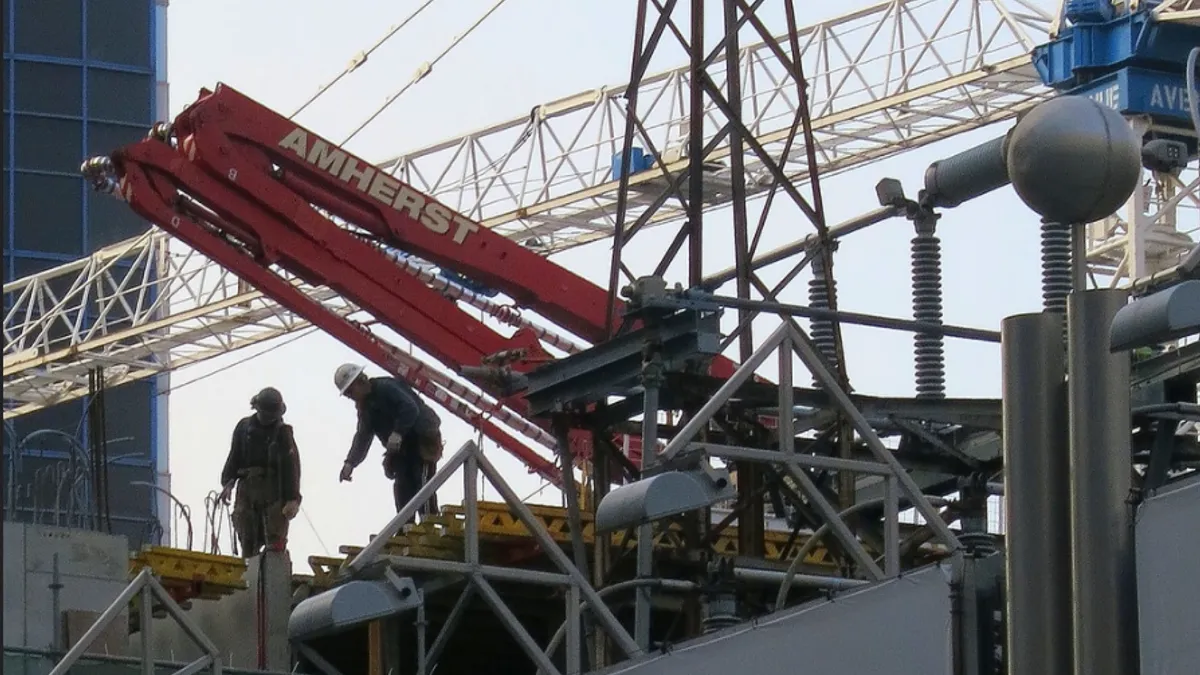Dive Brief:
- National nonresidential construction spending expanded 0.1% in July, a decrease of 4.2% from last year at this time, according to an Associated Builders and Contractors analysis of data published Sept. 1 by the U.S. Census Bureau.
- While the data suggests that commercial construction spending was effectively flat in July, the numbers are "meaningfully worse than they appear," said ABC Chief Economist Anirban Basu in a press release. When adjusting for inflation, the volume of construction services delivered by the U.S. commercial contractors actually declined in July, he said.
- The reasons for the decrease are many, Basu said, and include higher materials prices and worsening skills shortages. In addition, many project owners are delaying jobs due to elevated costs. "With COVID-19 continuing to wreak havoc on supply chains, materials prices and transportation costs are set to remain elevated well into 2022. The result is that the construction recovery is significantly slower than it would otherwise be," he said.
Dive Insight:
Data indicate that public construction spending has been more negatively affected than private spending, said Basu. While overall nonresidential construction spending is down 4% on a year-over-year basis, public construction spending is down more than 5%.
Spending was down on a yearly basis in 11 of 16 nonresidential subcategories. The only sectors that have increased since last year at this time are:
- Commercial (3.4%)
- Sewage and waste disposal (2.1%)
- Manufacturing (1.9%)
- Power (0.9%)
The sectors with the largest declines were:
- Public safety (-38.5%)
- Lodging (-30%)
- Conservation and development (-21.5%)
The most recent Commercial Construction Index report from accounting firm Marcum, released Sept. 1, warns that contractors should take steps to mitigate the risks brought on by rising prices.
"Elevated inflation is likely to persist into 2022 as global suppliers continue to struggle to keep up with elevated demand for goods and services," Basu said in the Marcum report. "Accordingly, contractors should assiduously work contingencies into their contracts to protect themselves from additional materials' price spikes. Given that construction firm services are in high demand and that backlog remains high, contractors should have enough negotiating leverage to accomplish that under most circumstances."
While saying that the overall picture remains "generally positive" for the U.S. construction industry, the Marcum study reiterated ABC's view that the delta variant has clouded the economic outlook for this year and beyond.
"Were it not for the delta variant, one would simply forecast a booming economy in 2022," said Basu.













